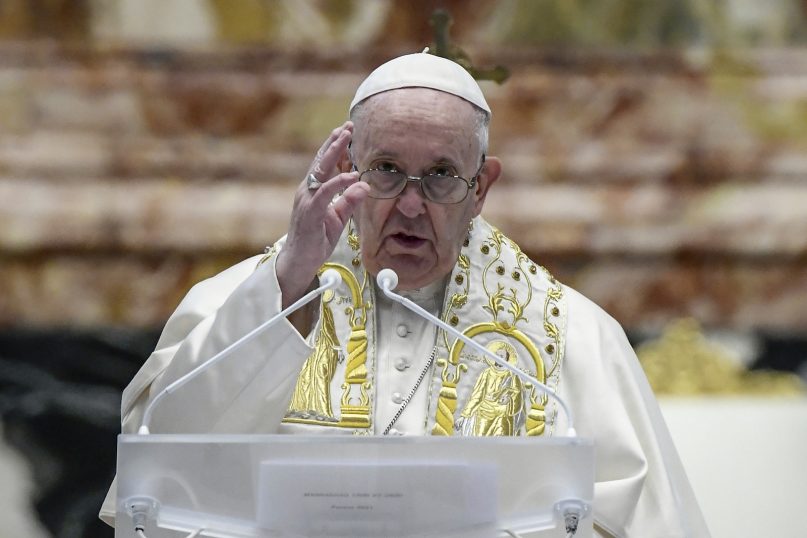VATICAN CITY (RNS) — Pope Francis continued his crackdown on financial corruption at the Vatican on Thursday (April 29) by issuing a decree requiring church bureaucrats, clergy or lay, to sign a declaration stating that they have no assets in tax havens.
The papal decree, known as a motu proprio, appears to be a response to the ongoing financial scandals that have rocked the Catholic Church. It is the latest in a series of reforms Francis has instituted to promote transparency in the Vatican’s financial dealings.
“Internationally accepted regulations and best practices require transparency from those holding key roles in the public sector for the purpose of preventing and combating conflicts of interest, patronage practices and corruption in general,” Francis wrote in the decree.
RELATED: Italian prosecutors request arrest warrant for Italian financier named in Vatican scandals
The pope also said that the Holy See will adhere to the United Nations Convention Against Corruption.
The decree comes as Moneyval, a committee of the Council of Europe charged with evaluating institutions’ financial transparency, is expected to release a long-awaited report on the Vatican’s compliance with international standards. The report is being viewed as a test of the efficacy of Francis’ financial reform efforts.
The new decree would make it more difficult for Vatican personnel to engage in transactions such as the $200 million London real estate deal that has brought the arrest of five Vatican employees and caused the downfall of a prominent cardinal.
The complex deal relied on offshore accounts in tax havens such as the British island of Jersey and collaboration with European businessmen who had been or currently are on trial for money laundering, tax evasion or fraud.
The pope’s decree requires that any prelate heading a Vatican department, as well as individuals with five-year contracts or carrying out administrative, judicial or supervisory functions, must avow that they have never been tried or convicted on corruption charges.
The signatory must also attest that he or she does not hold assets in countries identified as tax havens, even through a third party, or invest in companies that are against the church’s social teaching.
A recent report by Italian media outlet Rai3 found that the Vatican’s Administration of the Patrimony of the Holy See, known as APSA, which handles the institution’s real estate assets, invested millions in pharmaceutical companies that produce a version of birth control known as the morning-after pill, which violates moral doctrines enshrined in Pope Paul VI’s 1968 encyclical “Humanae Vitae.”
Former Vatican Auditor General Libero Milone told Rai3 in a report that aired Monday that during his tenure he found a “disorganized accounting situation” in APSA, which “lacked clarity,” and he cited “risky investments,” including in the German pharmaceutical company Sandoz. The Vatican sold its holdings in Sandoz in 2017, after Milone discovered the investments.
The Vatican’s Secretariat for the Economy, under the leadership of its prefect, Luigi Misto, is charged with overseeing the signed declarations “where it has reasonable cause.” It has the power to fire transgressors.
RELATED: Vatican convicts ex-bank chief in property embezzlement scam
The decree also prohibits Vatican employees from accepting gifts valued over $50, countering the long-held practice of favors and gift-giving that has characterized the papal court for centuries.
Vatican departments have 90 days to comply with the decree.
In May 2019 the pope issued regulations on procurements by Vatican departments, applying greater oversight and limitations on the purchase of goods and services, and in December of the same year he stripped the powerful Secretariat of State of its financial assets. But areas of financial opacity remain.
The Moneyval report expected this week will show to what degree European regulators believe the Vatican has made progress in meeting the standards of modern international financial systems.





